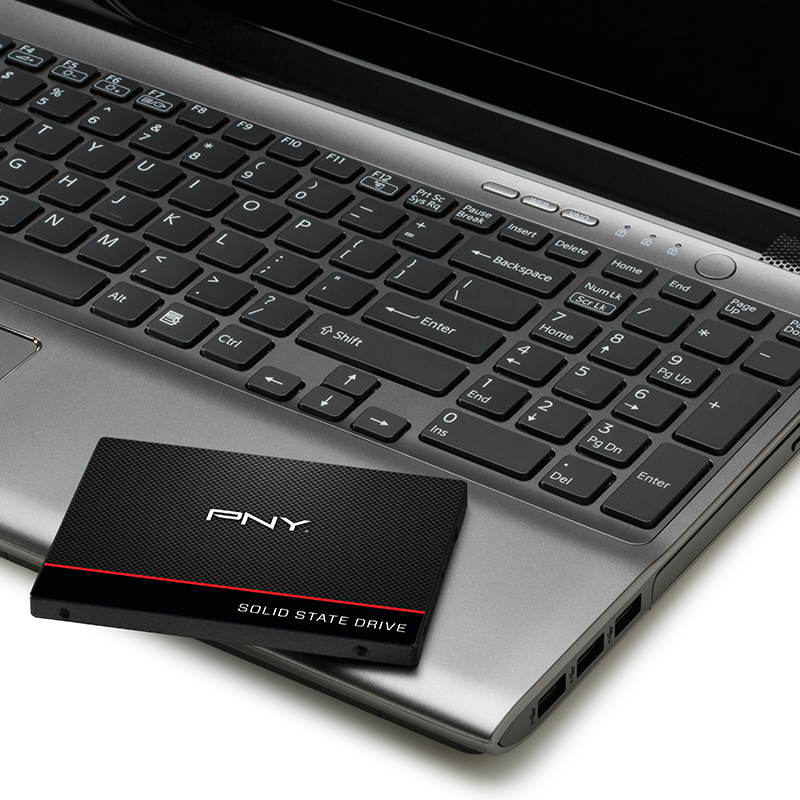PNY CS1311 SSD Review
Why you can trust Tom's Hardware
Conclusion
After testing the MyDigitalSSD BP5e 960GB with Phison's S10 controller and Toshiba 15nm triple-level-cell flash, we had high hopes for PNY's CS1311 at 240GB and 480GB. But the BP5e didn't exhibit the odd behavior we saw here today. Rather, MyDigitalSSD's BP5e looked to be a strong contender. For now, we're not sure if the CS1311's issues are related to firmware or its lower capacities. After all, these CS1311s are the first smaller S10-based SSDs with TLC running the new direct-to-die firmware.
At their current prices, PNY's CS1311s break new ground for solid-state storage. We can start looking at flash-based devices as more than just operating system boot drives. At 25 cents per gigabyte, they're affordable for external enclosures, console upgrades and even secondary storage inside your PC, a job once reserved for big mechanical disks. Shoot, prices are so low that some enthusiasts can consider SSDs for high-performance NAS appliances. Most of those applications involve predominantly sequential workloads, where the new direct-to-die algorithm has the largest impact on performance. The included Acronis True Image HD software also makes cloning existing drives much easier; it even works for cloning consoles.
As a PC operating system drive, the CS1311 could perform well enough for some, but it wouldn't be my first choice. The price difference between it and the market-leading Samsung 850 EVO just isn't large enough. PNY has already trimmed what it's asking for the CS1311; however, we want to see it even less expensive. The 850 EVO includes a large software suite, a five-year warranty and class-leading performance. In comparison, the CS1311 doesn't have an official software package, it's limited to three-year warranty coverage and the drive only offers mid-range performance compared to other entry-level SSDs. With less than $20 separating drives in the 512GB category, PNY's CS1311 just doesn't wield the value needed to dethrone the mainstream leader already selling at an entry-level price.
The CS1311 is an attractive Phison S10-based SSD with TLC flash, though. By including Acronis True Image HD, PNY can at least claim one notable differentiator. The company has an excellent reputation for building quality SSDs. It just needs to find a way to compete against Samsung's entrenched 850 EVO using a lower price or more value-add features.
MORE: Best SSDs For The Money
MORE: Latest Storage News
MORE: Storage in the Forums
Chris Ramseyer is a Contributing Editor for Tom's Hardware, covering Storage. Follow him on Twitter and on Facebook.
Follow Tom's Hardware on Twitter, Facebook and Google+.
Get Tom's Hardware's best news and in-depth reviews, straight to your inbox.

Chris Ramseyer was a senior contributing editor for Tom's Hardware. He tested and reviewed consumer storage.
-
cknobman Another one bites the dust.Reply
Sorry but I cannot see much of a reason to go with anything besides the Samsung right now.
-
2Be_or_Not2Be Thanks, Chris, for showing why we shouldn't buy this "one-step-back" SSD.Reply
It reminds me of when Honda introduced their new (new at the time) Insight hybrid. If you don't beat, match, or at least get very, very close to the market leader's (Prius) performance, you're not going to do very well with that model.
These "new" SSD models that have serious shortcomings aren't even worth purchasing for the price-savings over the EVO. -
3ogdy Yaaaaaaaaaaaaaaaaaaaaaaaaaaaaaaaaaaawn.Reply
There are so many players and products on the market in the SSD space right now that releasing more makes no sense unless there's anything special about it. They're all capped at SATA 6Gbps and performance sacrifices aren't worth the price difference ($7?!). I remember back in the day when SSDs were interesting. Now announcing a new SSD is like announcing a brand new higher-clocked Pentium IV CPU.
That's without even considering the already boring pricing on these things. Samsung's been selling the 500GB EVO for around $150 for way too long. Thankfully, they've come up with V-NAND, otherwise SSDs feel like '90s products already. At least 10 years on the market and no progress (thank you, SATA). Wake me up when 500GB drives are sold for less than $100 and then, maybe then, we could get this whole turtoise of an industry just a frucking bit forward. Until then, SSDs are not worth reviewing, except for a new case design they could feature. Meh. -
jojesa Most users wont see the difference in performance. I have installed both SSDs on the same Dell Latitude model and they bootup time, apps loading and shut down time looks exactly the same. I cannot tell the differences.Reply -
zodiacfml Please don't praise the Samsung too much as we don't want them monopolizing the SSD market. I think they are squeezing the prices down to prevent competitors from growing.Reply -
Jack_565 I would buy this just for the outward appearance of the SSD, if it goes on sale then i might consider one.Reply
Makes me wonder why cosmetic SSD Skins/Cases aren't a thing, ignoring voided warranties. -
mapesdhs Again nothing to compete usefully with the 850 EVO, though at least in the UK pricing for 850 EVOs has been going up a lot since xmas, especially the 250GB which reached a low of 53 UKP over the holiday season, but now is back right up to over 70 UKP. The 500GB has been more stable, and better value, but IMO a "good" SSD like the 850 EVO 500GB is not dropping below 100 UKP here because it doesn't need to. This happened before with the Samsung 830 a few years ago, people were happy to pay a lot more than the 125 UKP price offered by one UK seller for a couple of weeks (they sold over a thousand units), so pricing for 256GB models in general went up for several months.Reply
What happened to the competition SanDisk said they were going to bring to the market? I'm sure toms reported a couple of years ago that SanDisk was planning an 8TB model reasonably soon.
